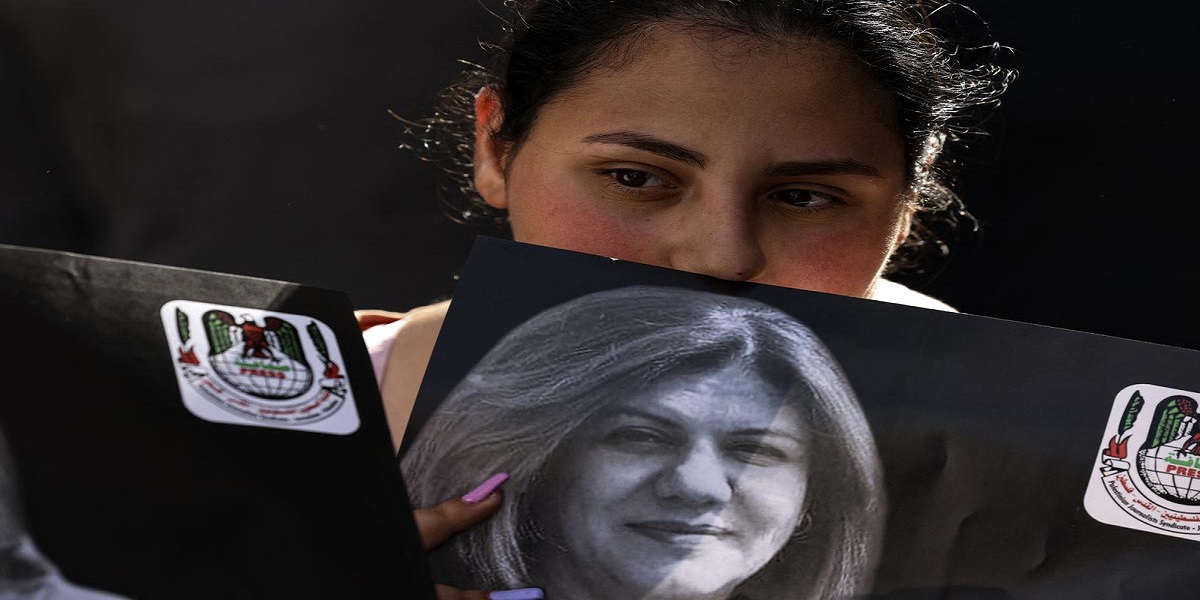Shock, indignation, and despair swept over the Palestinian territories when the Israeli army killed veteran Palestinian journalist Shireen Abu Akleh, 51, early Wednesday.
Israeli Defense Forces shot her in the head on the fringes of the Jenin refugee camp in the northern West Bank.
Israeli forces first said that Abu Akleh was killed by stray Palestinian fire, claiming that terrorists were also present in the vicinity.
However, army leader Lt. Gen. Aviv Kochavi later retracted that statement, adding that “at this moment, we cannot establish whose fire she was damaged by, and we lament her death.”
Abu Akleh, 51, was a well-known and respected figure in the Middle East, well recognized for her reporting on the brutal reality of Israel’s military occupation during the past three decades.
Her killing was described as an “affront to media freedom” by the US State Department.
After being shot in the back, her producer, Palestinian journalist Ali Samoudi, was hospitalized in stable condition.
According to Samoudi, there were no Palestinian gunmen in the neighborhood at the time of the incident. He reported how they moved up a street carrying their cameras and wearing protective jackets with the word “press” written in English on them. According to Samoudi, there were no pedestrians on the street, no exchange of fire, and no stones were hurled at the forces.
Several films that have appeared on social media indicate no violence when the journalists were accosted.
According to the Palestinian Institute of Forensic Medicine at An-Najah National University in Nablus, the autopsy revealed that she was struck by an explosive bullet that entered her brain and killed her instantaneously.
It was determined that the bullet that struck her caused considerable laceration of the brain and skull and that the weapon used was of high caliber.
The misshapen bullet is now being examined in a lab to determine who was responsible for her death.
Israeli armed personnel frequently target Palestinian journalists, shooting, murdering, wounding, detaining, or assaulting them, and often damaging their equipment.
Following a gathering of mourners outside Abu Akleh’s home in Beit Hanina, north of Jerusalem, Israeli police attacked the camp, demanding that people disperse and cease singing Palestinian nationalist songs and waving flags.
The EU has asked for an “independent” inquiry into the killing. In contrast, US Ambassador to Israel Thomas Nides has called for a “thorough investigation” into the death of the US citizen, who joined Al Jazeera in 1997.
According to Al Jazeera, “Israeli occupation soldiers killed Al Jazeera’s journalist in Palestine in cold blood.”
The Palestinian Authority stated that Israel was “responsible” for Abu Akleh’s death.
The Qatari government, which finances Al Jazeera, denounced the death “strongly.”
The Arab League condemned the shooting and blamed Israel. Jordan’s Foreign Minister Ayman Safadi called the killing “a heinous crime.”
Palestinian Prime Minister Mohammad Shtayyeh said: “With sad hearts, we mourn the death of the knight of the media and the icon of the national press. The martyr Shireen Abu Akleh was killed by the bullets of the occupation soldiers while she was carrying out her journalistic duty to document the horrific crimes committed by the occupation soldiers against our people.”
“Whoever was reporting the news became the news herself,” was the top trending hashtag trending on social media following Abu Akleh’s killing.
Elsewhere, the Israeli army shot dead a 16-year-old Palestinian boy in the West Bank city of Al-Bireh on Wednesday.
The Palestinian Ministry of Health said that the boy died after being shot directly in the heart while he was near his school.
For the latest International News Follow BOL News on Google News. Read more on Latest International News on oldsite.bolnews.com




















